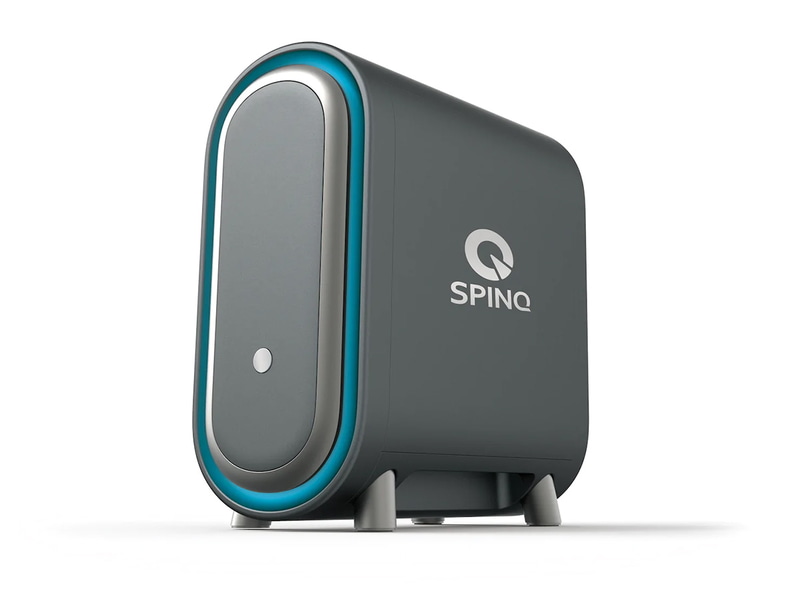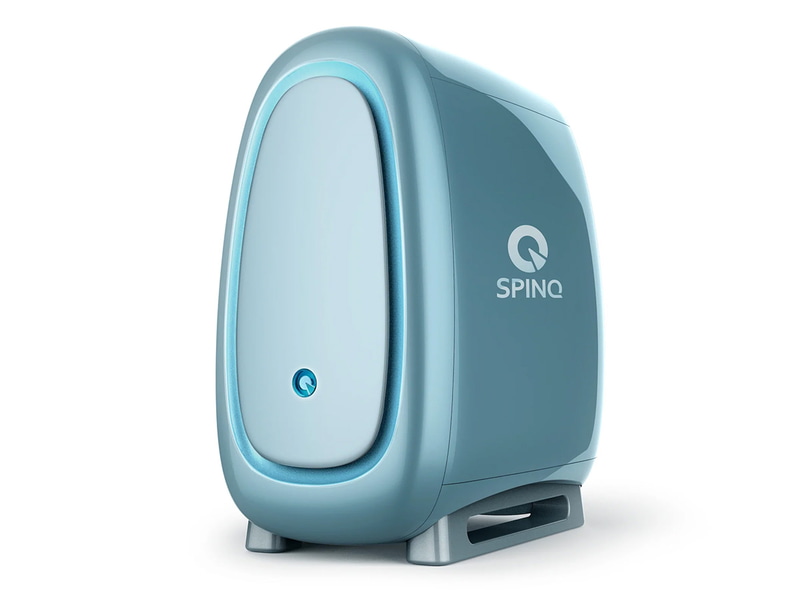SpinQ Introduces Trio of Portable Quantum Computers
To bridge the present and future of quantum computing through education.
Switch-Science has just announced a trio of quantum computing products that the company claims are the world's first portable quantum computers. Sourced from SpinQ Technology, a Chinese quantum computing company based in Shenzen, the new quantum computing products have been designed for educational purposes. The aim is to democratize access to physical quantum computing solutions that can be deployed (and redeployed) at will. But considering the actual quantum machinery on offer, none of these (which we're internally calling "quantops") are likely to be a part of the future of quantum.
The new products being developed with education in mind shows in their qubit counts, which top out at three (compare that to Google's Sycamore or IBM's 433-qubit Osprey Quantum Processing Unit [QPU], both based on superconducting qubits). That's not enough a number for any viable, problem-solving quantum computing to take place within these machines, but it's enough that users can program and run quantum circuits - either the integrated, educational ones, or a single custom algorithm.
The new "quantops" - the Gemini Mini, the Gemini and the Triangulum - have differing complexities and designs. Yet all of them feature a fully-integrated quantum computing system that's capable of operating at room temperature. That capability rests on the qubit's nature itself: SpinQ makes use of nuclear magnetic resonance (NMR) spin qubits, a technology first introduced back in 1997. And that's their main problem: NMR has extremely limited scaling capabilities, and its quantum capabilities are... relatively questionable. All NMR-related research from the past years has failed to show entanglement capabilities for these particular qubits - one of the most important "quirks" of the quantum world that's one of the elements responsible for its extreme performance potential (for certain specialized tasks).
The Gemini Mini is the company's entry-level offering, a 200 x 350 x 260mm, 14 kg system that features a two-qubit solution (hence the name) with >20 ms of coherence time. According to the company, the Gemini Mini is capable of running more than 30 gate operations on one qubit, and more than ten when using a two-qubit circuit. It features an integrated screen and supports 18 demo algorithms that include documentation and training materials. The Gemini is available for ~1,118,000 yen (~$8,104). Power consumption stands at 60 W (including the power needed for the integrated screen).

The Gemini sheds the "Mini" and the integrated screen, but doesn't increase its qubit counts. Instead, the system's increased complexity allows it to perform more complex gate operations, with 1-qubit operations allowing for up to 200 gates of depth, and upwards of 20 gates in 2-qubit operations while maintaining the quoted ">20 ms" coherence times. Being a more complex offering and including only six demo algorithms, SpinQ is seemingly aiming this product at more advanced quantum computing users. The pricing too is more "advanced" - about five times so, coming in at 5.72 million yen (~$41,510). It comes in an Alienware-like enclosure at a 600 x 280 x 530 mm volume, power consumption (absent of an integrated screen) is up to 100 W, and weighs ~44 kg (portability, it seems, is relative).

Triangulum, the third product, is the most advanced - it's bigger, it's badder and it's much more expensive (~$57,400). Within its 40 Kg, 610 x 330 x 560mm chassis, Triangulum offers three NMR spin qubits with coherence times >40 ms (doubling the capability of the Gemini pair). It seems SpinQ designed the Triangulum for higher coherence times - which means more work can be done before the spin qubits' states decohere and all work is lost. But in quantum (and in NMR devices especially), something has to give: the depth of gate operations per quantum circuit are decreased compared to the Gemini, offering only 40 gate-depth operations on a single qubit and up to 8 gate-depth for two or three-qubit operations. This is seemingly a necessary evil, resulting from the additional qubit and the increased coherence times. With NMR's recognizably bad scaling capabilities, the added noise had to be compensated for. It also likely doesn't help the system's coherence that Triangulum has a 330 W power consumption rating.
SpinQ's computers will not be the future of quantum. The technology they're based on is very unlikely to be one of the "winning" designs that unlocks the door to post-NISQ (Noisy Intermediate-Scale Quantum) quantum computing. Knowing that, it's interesting that the company has chosen to develop, manufacture and offer these systems, especially considering that multiple companies (such as IBM, Nvidia, AWS and SpinQ itself) already offer cloud-based quantum computer simulators. These allow users to select from different qubit types, and also offer much increased quantum computing capabilities. Taking all into account, it's unlikely that this offering will set the quantum computing world on fire. But it is another step on the actual commercialization of quantum systems - one that might help accelerate interest in that oh-so-juicy branch of computing.
Get Tom's Hardware's best news and in-depth reviews, straight to your inbox.

Francisco Pires is a freelance news writer for Tom's Hardware with a soft side for quantum computing.
-
bit_user Weird. Even if they weren't so heavily-restricted, I definitely don't see the point, when you can use quantum machines in the cloud.Reply
Is there any possibility these were designed for use in quantum communication systems, and the models shown here are being sold as an attempt to make a little extra revenue on the side?